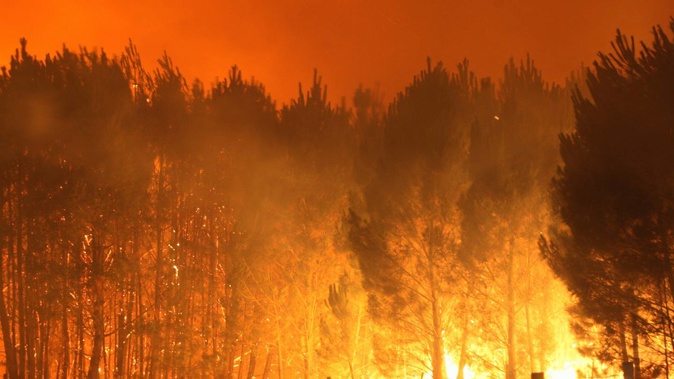
Just two in 10 of our forest growers are taking direct measures to adapt to climate change, a first-of-its-kind study suggests.
That’s despite most foresters having a good awareness of climate-driven risks – from new pests and diseases to extreme weather and wildfire – increasingly facing our industry and its billions of dollars of assets.
Recent years have already brought a slew of disasters that a changing climate is likely to bring more of: notably the destructive 2019 Pigeon Valley fire, the following year’s Lake Ōhau blaze, and February’s Cyclone Gabrielle, which damaged swathes of North Island forestry and sent tonnes of silt and slash into East Coast rivers.
But the new Scion-led research marked the first time that our third largest export-earning sector has been canvassed on climate adaptation.
To date, study leader Dr Grace Villamor said, most climate-related research on forestry had instead been focused on how it could help lower net emissions.
“Preparing for the effects of climate change is an important part of making our forests more resilient, and so we were interested to know more about what forest managers are doing.”
Over three months in 2021, her team surveyed 60 growers from organisations that collectively manage more than 70 per cent of our plantation forests.
They were asked about how they thought they’d be affected by climate change, what they worried about most, how they were adapting, and what barriers were stopping them.
About 60 per cent of respondents thought it would worsen the impact of pests and diseases, while making wildfires more frequent.
Yet fewer than half thought climate change would affect their forest growing – and just 21 per cent were taking direct adaptation measures.
/cloudfront-ap-southeast-2.images.arcpublishing.com/nzme/GHABFABRXFCK5MIM2C5AAOUPSI.jpg)
“Preparing for the effects of climate change is an important part of making our forests more resilient," Scion researcher Dr Grace Villamor says. Photo / Supplied
“If we look at all measures that forest managers are taking – which will include some that have climate change benefit as part of other forest management activity – the number is getting close to 50 per cent,” she said.
“Of course, that means that of the forest managers we surveyed more than half aren’t taking any measures to adapt to climate change, so it’s worth working to understand why that might be.”
Once a forest was established, she explained, there weren’t many direct management changes that forest managers could make.
“Because some adaptation measures can only be taken after harvest when you have a chance to reset, it would not be too surprising if those forest managers with trees past thinning age don’t think there is much more they can do to adapt for the next 15 years or so,” she said.
“Most forest managers also have good risk management in place already, for instance to manage the risk of fire.
“While some of those risks will certainly increase with climate change, the survey respondents may be confident that existing risk management measures will be sufficient.”
Asked about barriers to adaptation, most disagreed that ability, resources or motivation were factors.
“Most respondents agreed we need more research to improve adaptive capacity, and a majority agreed that better climate-related information from government would improve their capacity to adapt.”
As well, forest managers with more experience appeared more likely to adopt measures to adapt to climate change than managers with less experience.
Villamor said it’d be important to carry out more surveys to see if Gabrielle would’ve shifted managers’ awareness of climate risks.
“Post-Gabrielle responses may have differed – at least for those managing forests on steep erodible slopes.”
Forest Owners Association president Grant Dodson said that, while the impacts of our extreme summer had made climate change more of a prominent topic, foresters already had a good awareness of potential impacts.
“And we’ve known that the risk of things like that have been generally increasing.”
Dodson said adapting to these risks came gradually, in step with harvesting, re-planting and upgrading infrastructure like roads.
“It takes 25 or 30 years to gradually build that resilience in your forestry estate, but by and large, forests in New Zealand are well managed.”
Take your Radio, Podcasts and Music with you









